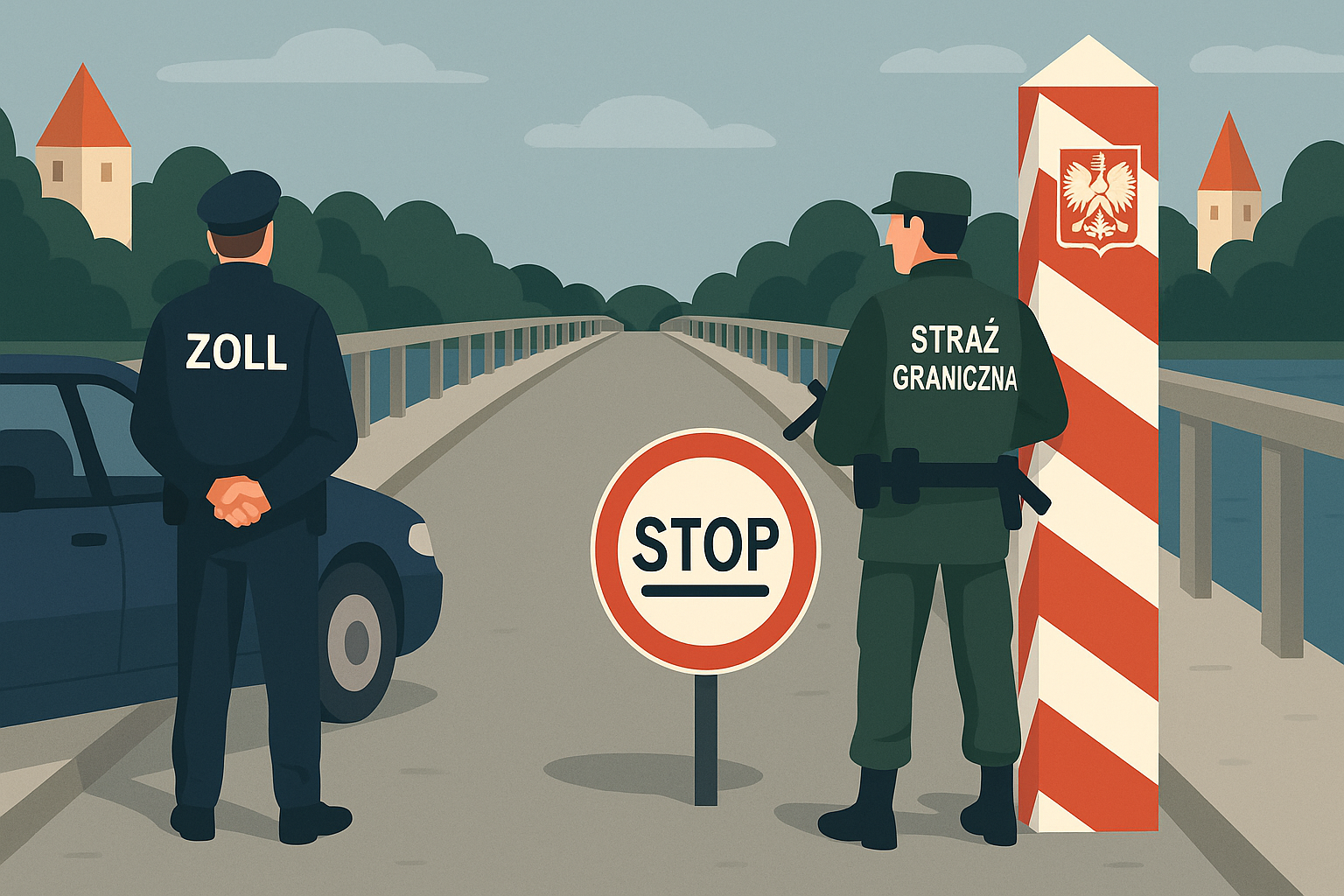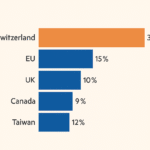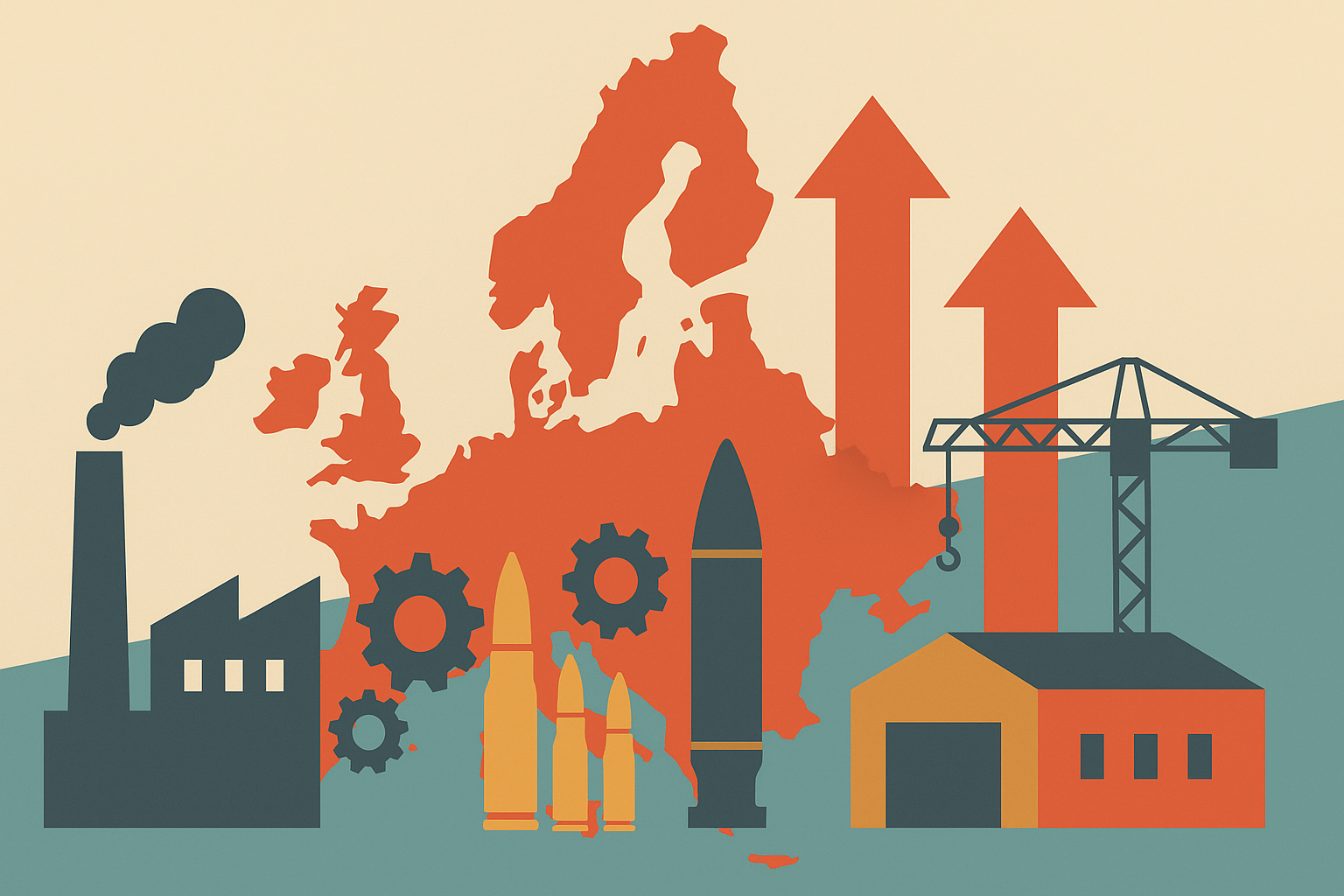For the first time in years, residents of the twin towns of Guben (Germany) and Gubin (Poland) are once again seeing border guards stationed on both sides of the 68-metre bridge that connects them.
The reinstatement of checks marks a sharp reversal of decades of open borders under the Schengen Agreement. For over 20 years, locals crossed freely for work, shopping, or school, with the border line along the River Neisse largely invisible in daily life.
Now, the bridge has become a symbol of political division. The move follows escalating tensions between Berlin and Warsaw over migration policy, amid a surge in anti-immigration sentiment.
Tit-for-Tat Controls
In May, newly elected German Chancellor Friedrich Merz tightened controls to block asylum seekers, fulfilling a campaign promise made after a high-profile migrant-related crime. The policy aimed to stem the rise of the far-right Alternative for Germany (AfD), which campaigned for mass deportations.
Weeks later, with migration dominating Poland’s presidential race, Prime Minister Donald Tusk reintroduced checks at the German border. This came after Germany’s measures disrupted political dynamics in Poland, where the Law and Justice (PiS) party’s candidate, Karol Nawrocki, won the presidency. Nawrocki has pushed nationalist policies, including demands for €1.3 trillion in reparations from Germany for World War II atrocities.
Both governments cited emergency provisions allowing Schengen members to suspend free movement temporarily. They join nine other Schengen countries currently applying internal border controls.
Impact on Cross-Border Life
Local mayors Fred Mahro (Guben) and Zbigniew Bołoczko (Gubin) have expressed concern about the long-term damage to cross-border cooperation. While disruptions have so far been minimal, symbolic tensions are rising, including nationalist displays on the Polish side of the bridge.
Self-styled Polish vigilantes have also appeared near the crossing, prompting political clashes between Tusk’s government, which condemned them as “hooligans”, and PiS, which hailed them as defenders of sovereignty.
Domestic Politics Driving Policy
Analysts say both Merz and Tusk face domestic political pressure from right-wing populists, making a reversal politically risky. German interior minister Alexander Dobrindt has praised the controls, citing a 50% drop in asylum applications in the first half of the year. Poland has also extended its checks for at least another 60 days.
Efforts to coordinate policy have faltered, with Warsaw rejecting Berlin’s proposal for joint patrols. The legal basis for some measures remains under review by EU courts, which have recently ruled in favour of asylum seekers in similar disputes.
Uncertain Future
With both sides unwilling to appear “weak” by lifting restrictions first, experts warn the controls could remain in place for months.
“Europe is built on trust between neighbours,” Mahro said. “When that trust erodes, it hurts Europe.”








